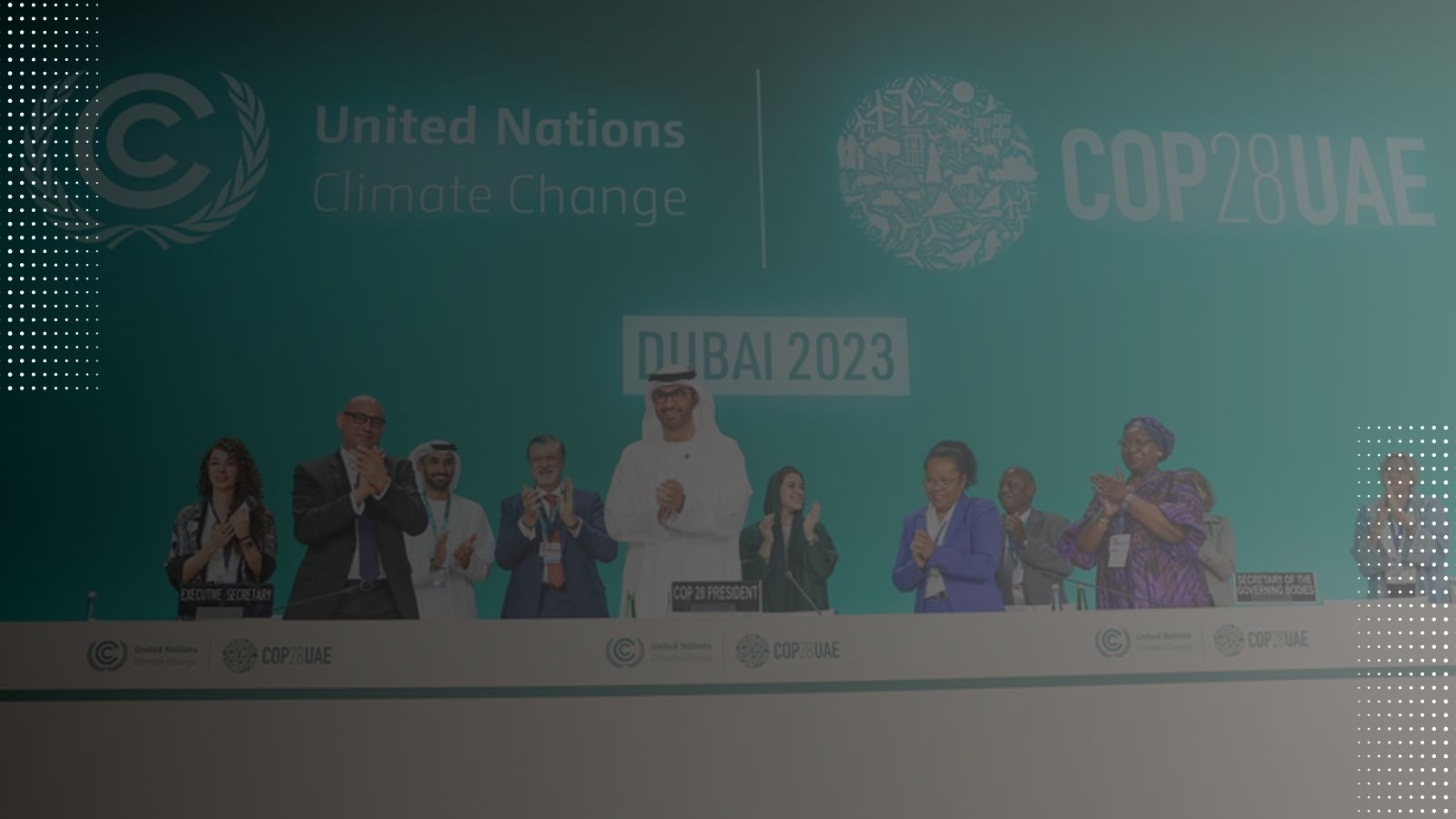Fifty major oil and gas companies have committed to stop adding to greenhouse gas emissions by 2050 in a deal announced at COP28.
Signatories of the Oil and Gas Decarbonization Charter (OGDC) also pledged to work towards “near-zero” methane emissions from exploration and production.
The companies, which include national oil companies such as Saudi Aramco and Petrobas, and private oil giants such as ExxonMobil and BP, account for 40% of global oil production.
However, critics were quick to point out the rather vague language used in the charter and its lack of ambition and accountability.
‘Emission intensity’
By signing the charter, major oil and gas firms committed to “investing in the energy systems of the future” and to increase transparency, including improving measuring, reporting and independent verification of emissions.
They also agreed to “align with broader industry best practices to accelerate decarbonisation of operations and aspire to implement current best practices by 2030 to collectively reduce emission intensity”.
Sultan Al-Jaber, COP President and head of the UAE’s national oil company ADNOC, said the OGDC was “a great first step… We need the entire industry to keep 1.5C within reach and set even stronger ambitions for decarbonisation”.
‘Vague and voluntary’
A number of experts highlighted the limitations of the charter, which is purely voluntary and contains no binding agreements. Between 85%-90% of emissions from oil and gas majors come from the end use of products, such burning petrol and cooking gas. These are known as scope 3 emissions and are not covered by the charter.
“The OGDC appears to be more of the same from the oil and gas industry – vague, voluntary, high-level commitments with a glaring absence of any commitment to reduce scope 3 emissions – the vast majority of the sector’s contribution to climate change”, said Laura Hillis from the Church of England Pensions Board, which sold its oil and gas holdings earlier this year.
There was also very little by way of new pledges, according to Murray Worthy from Zero Carbon Analytics: “This charter does not go beyond previous oil industry commitments under the Oil and Gas Climate Initiative, which the industry has yet to deliver on”.
Carbon capture and storage
The OGDC forms part of the oil and gas industry’s wider initiative called the Global Decarbonisation Accelerator, which focuses on scaling up the future energy system, decarbonising the current system and targeting methane emissions.
Efforts to date suggest the industry is focused primarily on reducing emissions from fossil fuels using technologies such as carbon capture and storage (CCS). CCS currently captures 0.1% of global emissions and forecasts suggest that, due to high costs and low capture rates, it is very unlikely to scale up in time to make any meaningful contribution to mitigation efforts.
Signatories to the OGDC:
National oil companies:
- ADNOC,
- Bapco Energies,
- Ecopetrol,
- EGAS,
- Equinor,
- GOGC,
- INPEX Corporation,
- KazMunaiGas,
- Mari Petroleum,
- Namcor,
- National Oil Company of Libya,
- Nilepet,
- NNPC,
- OGDC,
- OMV,
- ONGC,
- Pakistan Petroleum Limited (PPL),
- Pertamina,
- Petoro,
- Petrobras,
- Petroleum Development Oman,
- Petronas,
- PTTEP,
- Saudi Aramco,
- SNOC,
- SOCAR,
- Sonangol,
- Uzbekneftegaz,
- ZhenHua Oil and
- YPF.
Private oil companies:
- Azule Energy,
- BP,
- Cepsa,
- COSMO Energy,
- Crescent Petroleum,
- Dolphin Energy Limited,
- Energean Oil & Gas,
- Eni,
- EQT Corporation,
- ExxonMobil,
- ITOCHU,
- LUKOIL,
- Mitsui & Co,
- Oando plc,
- Occidental Petroleum,
- Puma Energy (Trafigura),
- Repsol,
- Shell,
- TotalEnergies,
- Woodside Energy Group.





